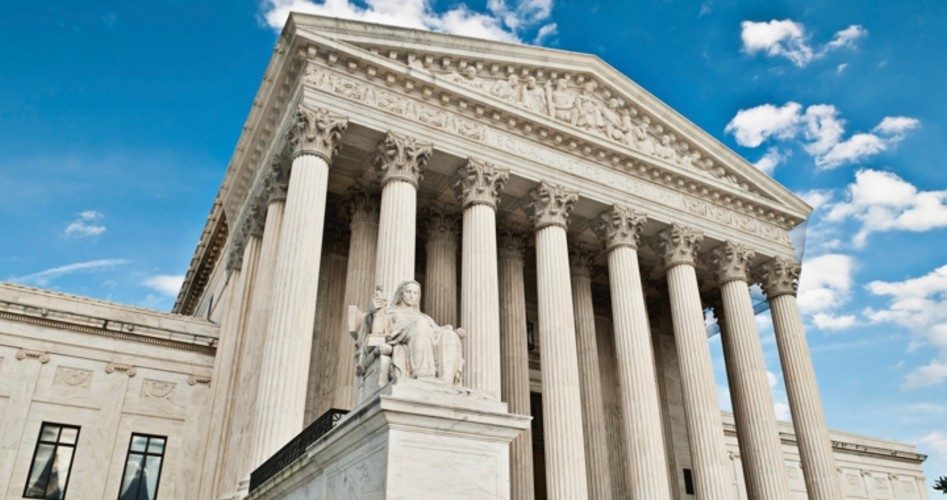
Facebook and the other social-media giants are under fire for censoring not just conservatives but also liberals, and now a case is before the U.S. Supreme Court that might alter how those companies operate.
Are they private companies that can censor their users? Or are they more like public utilities that can be regulated, and does their connection to government open them to First Amendment claims?
Manhattan Community Access Corp. v. Halleck might settle it.
The Case
The case involves Manhattan Neighborhood Network, a public-access channel in New York. MNN killed a video because it contained scatological language that, MNN said, trespassed its policies. The video’s producers, citing the First Amendment, sued. Because MNN acted for the state, it could not refuse to broadcast the video.
Reported Constitution Daily, “the case made its way through the legal system until a divided three-judge Second Circuit Appeals panel ruled in favor of the producers. Although MNN was a privately owned non-profit that operated the TV channel, two judges believed its programming represented a public forum protected by the First Amendment.”
MNN’s brief made clear what is at stake: “If the minimal nexus MNN has to the government is sufficient to find state action, then entities such as Time Warner, Facebook, Twitter, and National Public Radio, all of which have similar (though minimal) connections to government, should be concerned,” MNN said.
Social-media Censorship
As The New American reported on Monday, Facebook attacked more than 800 pages and users because of their content, and Google is preparing to be a “good censor.”
The victims of the attack included popular liberal pages, although the social-media companies themselves are hotbeds of leftist social-justice activism. For months, conservatives have rightly claimed that the leftists who manage and work for the platforms are censoring their views. The campaign to destroy conspiracy peddler Alex Jones, whom Facebook, Twitter, and YouTube have banned, is but one example.
Still, CNBC reported about the case, “Some observers [say] the justices are unlikely to rule in a way that could substantially impact social media companies.”
One expert said that a ruling to make completely unregulated social-media platforms would intensify the hostility among users, eventually pushing them away. “[Twitter] is an uncivil place as it is,” he told CNBC. “But it will become less civil.”
True, perhaps, but who will decide what “civil” means, and whom will Twitter censor should it “become less civil?”
Whatever the answer, the courts haven’t said that the First Amendment guarantees access to privately owned social-media platforms, CNBC observed:
Courts in California and New Jersey [have found] that social media companies don’t constitute state actors subject to First Amendment liability. A federal judge in New York ruled in May that the First Amendment protected users interacting with parts of Twitter, including the president’s feed. But that ruling did not apply to Twitter as a whole.
But in another case, “the court struck down a state law that prohibited sex offenders from accessing social media sites” because social-media sites are “a modern public square.’”
Open to All Ideas?
Despite being caught red-handed, the tech titans deny they censor conservatives. So says Twitter boss Jack Dorsey.
Google, which controls 90 percent of the searches on the Internet, said likewise, and Facebook honcho Mark Zuckerberg testified likewise before the Senate’s Commerce and Judiciary Committee and the European Parliament. Facebook is a “neutral public forum,” he told Senator Ted Cruz (R-Texas). Facebook is a “platform for all ideas.”
When Zuckerberg testified before the European Parliament, British conservative Nigel Farage observed that neither the election of Donald Trump nor the passage of the referendum for Britain to leave the European Union would have been possible without social media. Yet people with “majority mainstream opinions” are “willfully discriminated against.”
“Who decides what is acceptable, who are these … third-party fact checkers?” he asked, referring to the leftist enforcers such as the Southern Poverty Law Center that police Amazon, Facebook, and YouTube.
Zuckerberg repeated what he told Cruz. He added that he wants to “share any idea across the political spectrum. It’s very important to me that we’re a service that allows for a wide variety of political discourse…. I can commit to you today that we have never and will not make decisions on what content is allowed or how we do ranking on the basis of a political orientation.”



